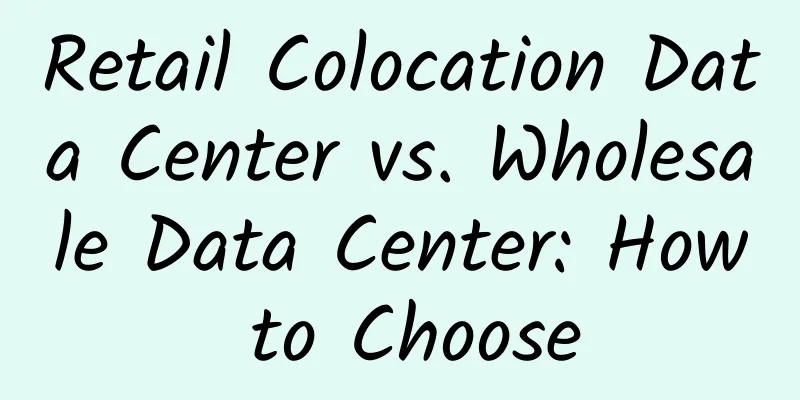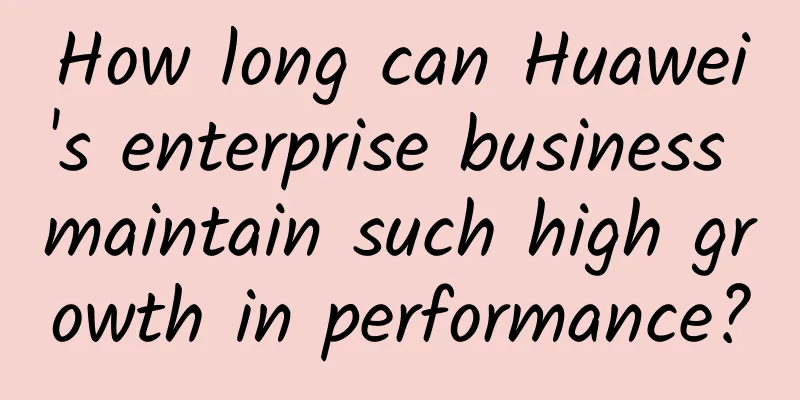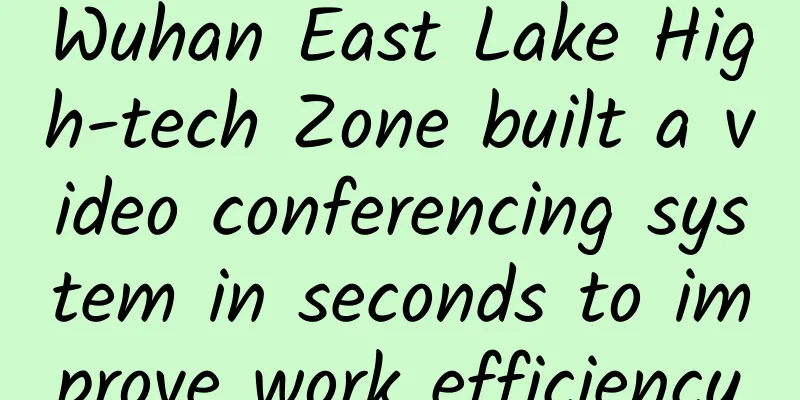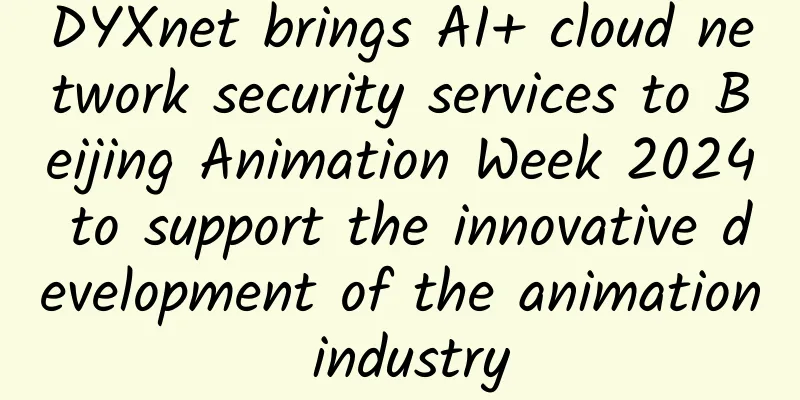Retail Colocation Data Center vs. Wholesale Data Center: How to Choose

|
Wholesale data centers offer more control, while retail colocation data centers offer more flexible space. If your organization is considering using a third-party data center facility, how do you choose between wholesale and retail colocation data centers? Third-party data center facilities come in many shapes and sizes. But they can generally be divided into two categories: wholesale data centers and retail colocation data centers. The two types of data centers used to be easy to distinguish: wholesale data centers are where customers rent a data center facility owned by a third party, while retail colocation data centers are where multiple customers' workloads are hosted in a shared space.
But it’s not so easy to tell the difference now. Many large data center facility owners are renting out large data center facilities in a pseudo-wholesale manner to customers with highly personalized services. So what is the real difference between wholesale and retail colocation data centers? How should an organization determine which data center is best for it? Here are five key factors to consider. 1. Data center scale The first thing to consider is the overall size of the data center. If the customer is working with dozens to hundreds of servers built with standard systems, then a retail colocation data center may be a better choice. They have little to no concerns about power density and power supply, and it is usually sufficient to specify such matters in the contract. Most customers who use wholesale data centers have minimum power requirements, and usually 1MW and above of power capacity is the best choice. Customers who own and operate thousands of servers may need a more flexible design approach: configuring multiple input power supplies and targeted cooling of possible hot spots. As well as more stringent environmental monitoring, this means using wholesale data centers, where customers can personalize their data center facilities according to their needs when signing a contract. 2. Power and Cooling Hyperscale and high-density computing applications are prime examples of where wholesale data centers are needed. Most retail colocation facilities place caps on the power that can be supplied to any specific area, as well as the facility as a whole. Providing adequate power to supercomputers or highly optimized systems (such as ultra-dense platforms with optimized servers, GPUs, and other specialized computing engines) can have power densities far higher than a retail data center facility can easily match. Even if a retail data center facility owner is able to provide adequate power, it can exceed its service capabilities and may not be able to provide the necessary support to customers. This also requires backup power: Many customers who use wholesale data center facilities require 100% uptime guarantees, but can decide for their own situation that the cost of guaranteeing 100% availability is too high. Customers are better off using wholesale data center facilities that can design such power distribution requirements from the beginning and provide such support in the contract. Of course, providing adequate cooling capacity is another important factor, and this can be a difficult problem for retail colocation data center providers to solve. Generally speaking, it is difficult for their single cooling facilities to provide better cooling for customers' workloads. As part of the original design and build capabilities, wholesale data center providers will usually be able to provide specific cooling services based on customer requirements. 3. Connectivity Another area to consider is connectivity. Historically, wholesale data center facility providers owned and managed the facilities, power and cooling, and building information management systems, while network connectivity was something that customers considered and handled themselves. However, connectivity is now a core part of the data center facility owner’s lifecycle. As a result, there may be little difference in the internet connectivity capabilities between a wholesale data center and a retail colocation data center—although wholesale data centers may offer more flexibility for some niche or vertical internet providers. Of course, most wholesale data center providers will allow customers to use the internet provider of their choice, while not all retail data center providers allow this. There is also the question of internal cross-connects, and this is an area where the differences between wholesale and retail data centers are narrowing. In the past, wholesale data center facilities did not have to provide internal cross-connects, as this was dependent on the needs of the customer. Retail colocation providers see the need to provide good internal cross-connects so that customers can take advantage of available services from other users on the same platform, as well as integrated third-party services from major cloud providers. Both types of data centers must now support high-performance internal and external cross-connects, but wholesale data centers can provide greater flexibility. 4. Security Wholesale data center facilities typically only allow access to customers and employees of the wholesale data center facility provider, and customers can require that the wholesale data center facility provider's employees undergo security clearance. In a retail colocation data center, since multiple customers share the data center facility, they must take whatever measures are necessary to install their equipment in cabinets or racks that take security precautions to provide adequate security. 5. Cost High costs are why many organizations find wholesale data centers are not right for them. Essentially, what organizations using wholesale data centers are doing is creating their own data center environment, either as the sole user of a third-party managed facility or as a minority user. Even within a shared colocation facility, costs may not be shared evenly; each customer's requirements for power, cooling, connectivity, and auxiliary power availability may vary, with upfront and ongoing costs varying. Overall, your choice depends on data center size and cost. Most organizations will find the simplicity and cost of a retail colocation facility sufficient for their needs. For those with hyperscale, supercomputing or other specific needs, wholesale data centers may be necessary if you can afford the cost. |
<<: What went wrong with HTTP/2? It’s about to be deprecated after just two years of success! ?
>>: The 10 most representative software-defined network tools in 2020
Recommend
How much does it cost to build a 5G base station?
Since the official announcement of commercial use...
Can you distinguish between distribution, high concurrency and multithreading?
When these three words are mentioned, do many peo...
HTTP 2.0 Interview Pass: Mandatory Caching and Negotiated Caching
[[413787]] This article is reprinted from WeChat p...
Empowering the ecosystem and working together! Borei Data becomes a member of the Photosynthetic Organization
As the domestically-developed industry ecosystem ...
Network equipment and protocols: protocols
When visiting a website and sending or receiving ...
Review of 5G in 2019: 5G sounded the rally call for commercial use
"5G is like a newborn baby, new from head to...
What is Fiber to the Home (FTTH)?
Fiber to the home (FTTH) is the transmission of c...
Baidu cloud carnival/price guarantee 11.11, cloud server as low as 46 yuan/year
This year's Double 11 event started very earl...
79 yuan for 5 major memberships: Baidu Library/Tencent Video/Qunar/Watsons/Fotor Lazy Design
Recently, my iQiyi membership is about to expire....
Sharktech: Shark data center 1Gbps unlimited traffic server Denver from $49/month, Los Angeles from $59/month
Sharktech, also known as SK Data Center, is a lon...
How to Cut an Oxen - Illustrated MySQL 8.0 Optimizer Query Parsing
[[423739]] 1. Background and Architecture We all ...
Alibaba Cloud invests 200 billion yuan in data centers to take the lead in new infrastructure
Alibaba Cloud announced yesterday that it will in...
Technology trends to watch in 2018
In the coming 2018, artificial intelligence (AI),...
Cisco Unleashes Unlimited Opportunities with Industry’s First Open, Intent-Based Networking Platform
The three major technological changes of the Inte...
[11.11] OneTechCloud VPS monthly payment 30% off starting from 18 yuan/month, Hong Kong CN2&CMI/US CN2 GIA&9929/High defense optional
OneTechCloud also launched a promotion during the...





![[Black Friday] CloudCone flash sale is about to start, Los Angeles VPS annual payment starts from $7.99](/upload/images/67cabce62e634.webp)



